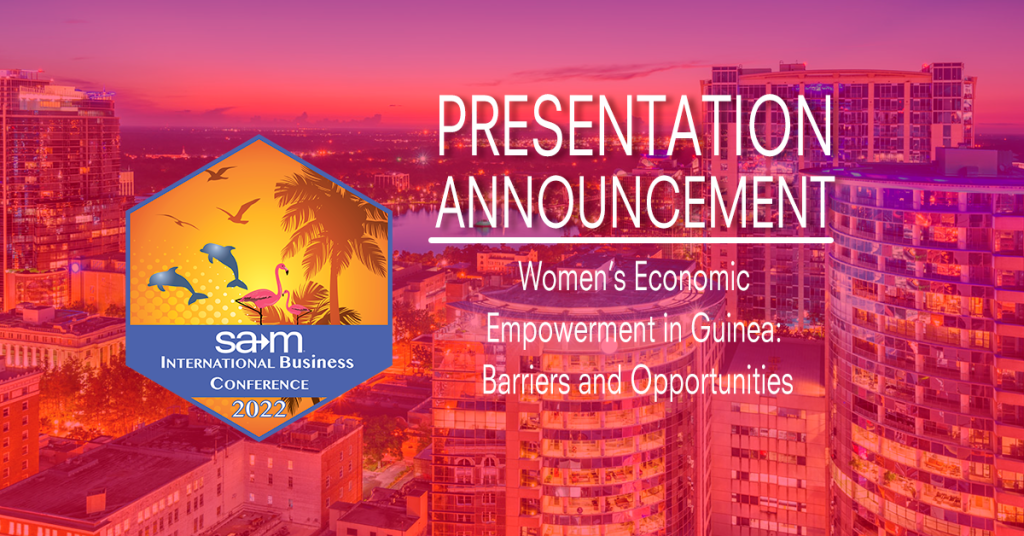
The programming committee for the 77th Annual SAM International Business Conference is pleased to announce the acceptance of the presentation Women’s Economic Empowerment in Guinea: Barriers and Opportunities, by Mamady Kamara and Anita Jose from Hood College.
Presentation Abstract: The topic of women’s economic empowerment (WEE) has been attracting a lot of attention in the past decade. It can be defined as the control that women have to make economic decisions that affect their lives as well as those of their families and communities. The purpose of this paper is to analyze perceptions regarding the barriers to WEE in Guinea. Using a survey of over 100 women leaders from different sectors, such as private, government and non-governmental, we examined the barriers that were perceived as preventing women from being full participants in economic actions. The survey contained 19 items that were culled from the literature and refined based on a pilot test. Examples of such items are: difficulties for women to access capital; lack of training in business skills; lack of educational opportunities; lack of access to decently paid work; and unpaid care burdens, including household workloads.
Results indicated that the main barriers that limited women’s ability to fully participate in the economic sphere are the lack of economic opportunities, inadequacy of current legal infrastructure, absence of sufficient social protection policies, and socio-cultural barriers, such as overt discrimination against women and girls. Kruskal-Wallis test, which was performed to evaluate if the three scales that made up “economic empowerment barriers” differed based on the demographic characteristics of the respondents, such as generation, marital status, religion, and geographic region, found that only geographic region yielded statistically significant results. Given this positive finding, the Dwass-Steel-Critchlow-Fligner Pairwise Comparisons Test (DSCFPC) was performed to pinpoint the source of the differences. It was found that there were differences between the respondents of Upper Guinea and Maritime Guinea regarding economic empowerment barriers. While the final results showed that there was progress being made in Guinea to increase women’s economic empowerment, more needs to be done. Recommendations and implications of the research conclude the paper.
Join us online to see this great paper and many more March 31 – April 2, 2022. For registration information visit www.samnational.org/conference.
